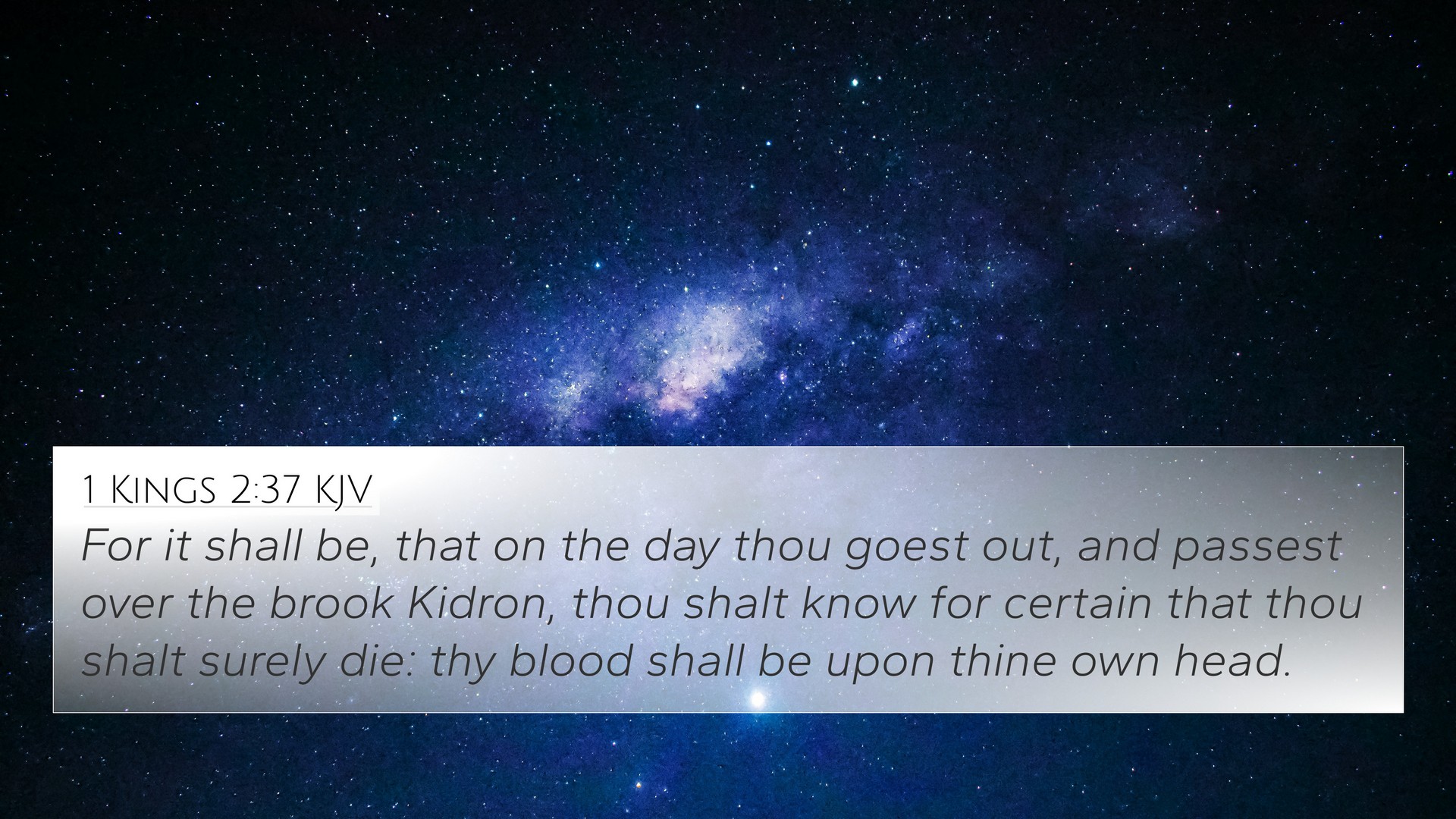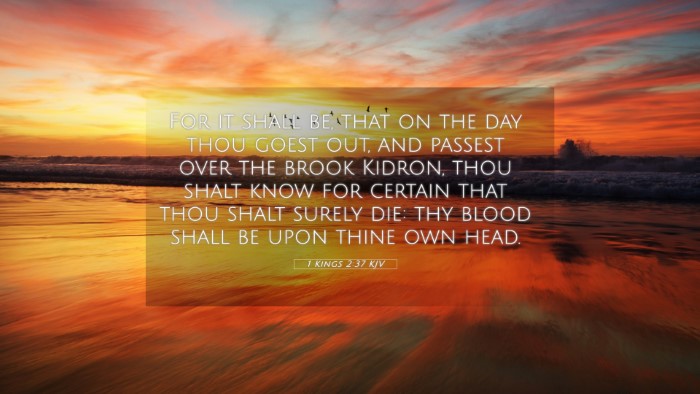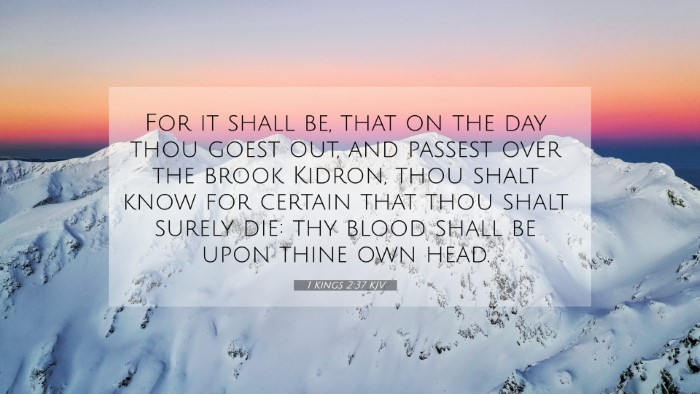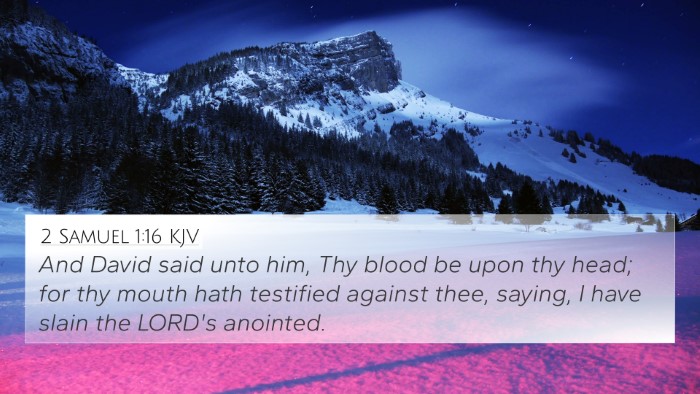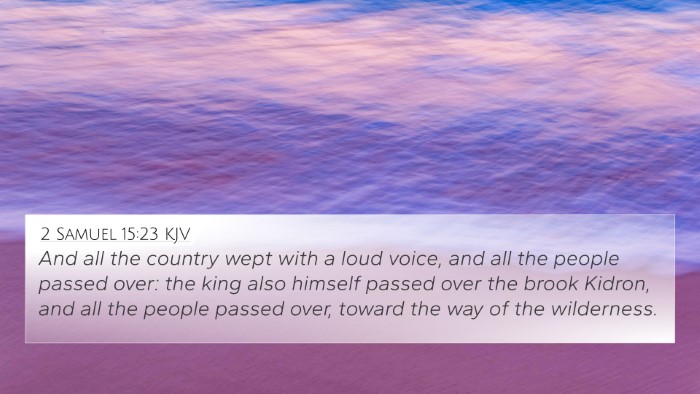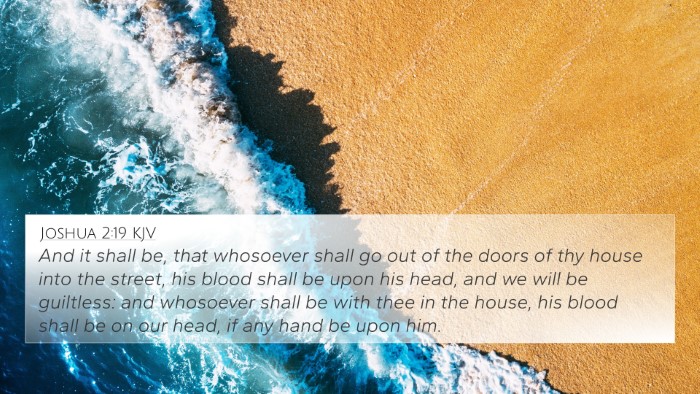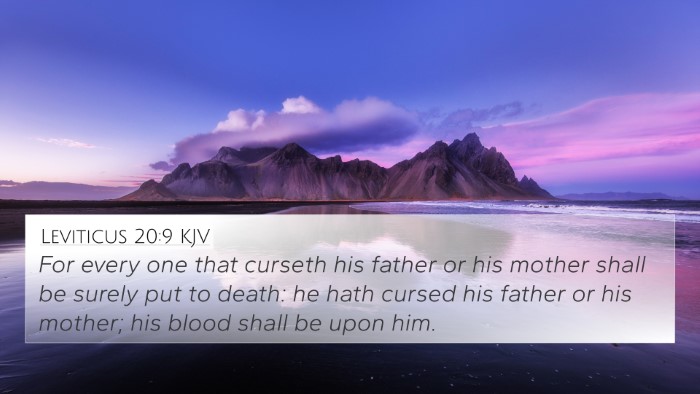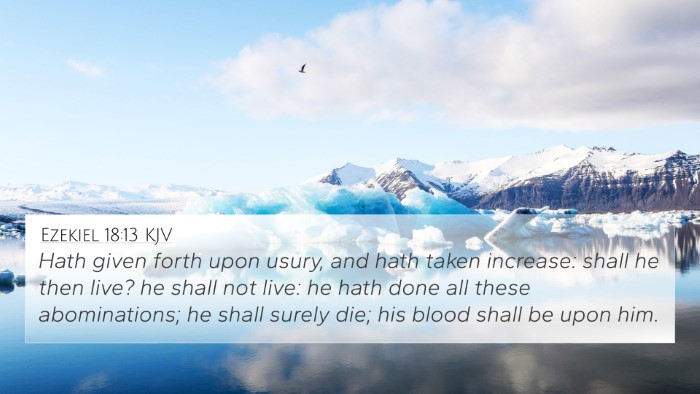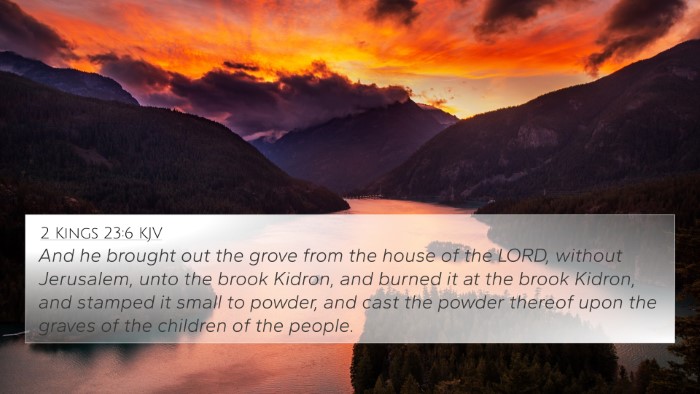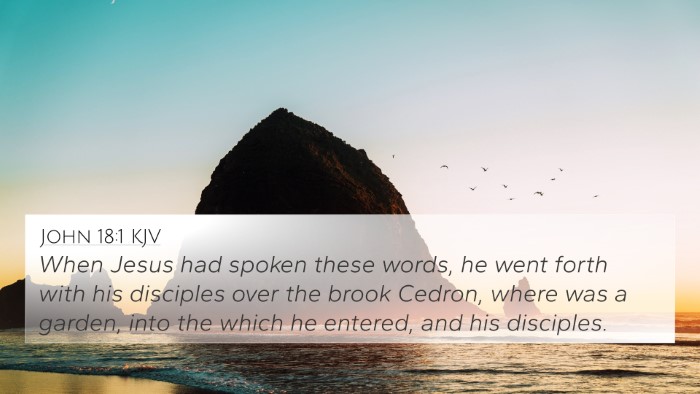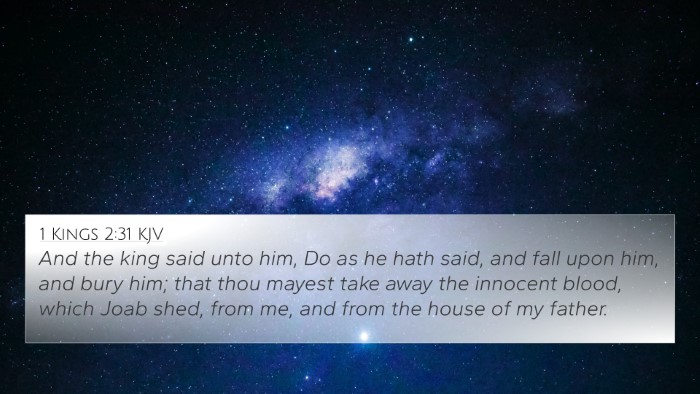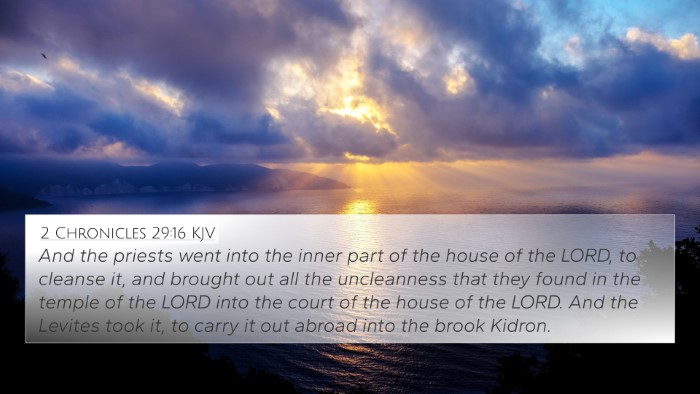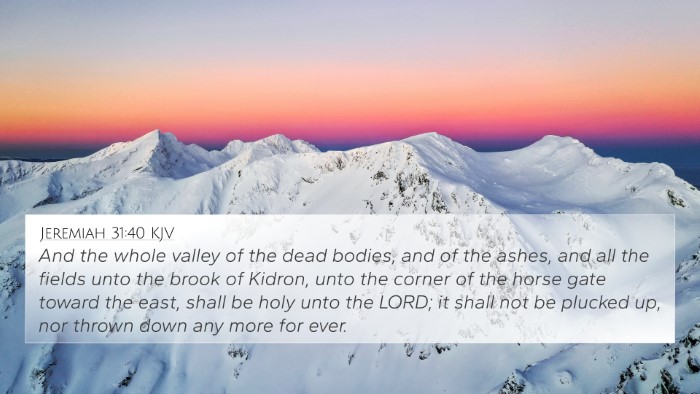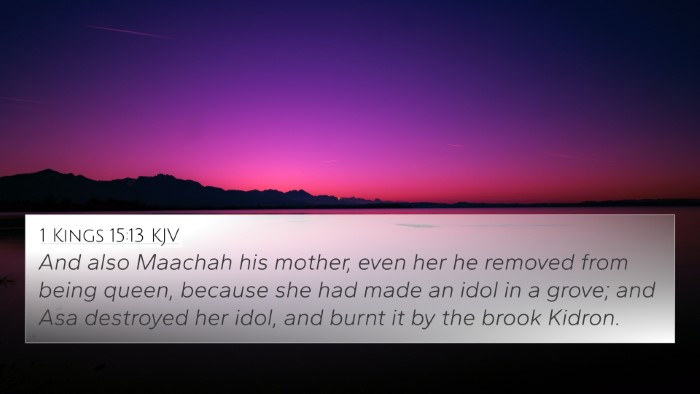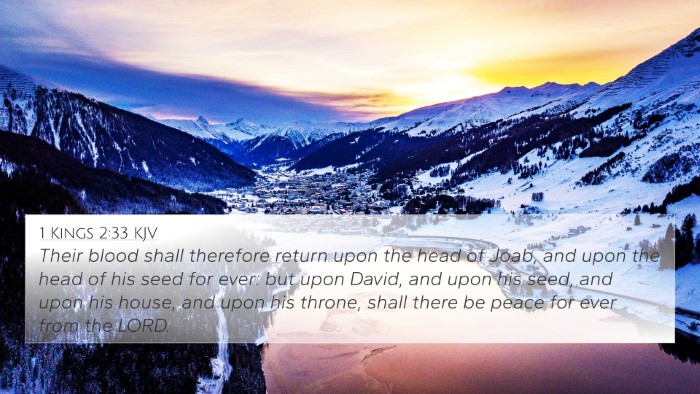Understanding 1 Kings 2:37
Verse: "For it shall be, that on the day thou goest out, and passest over the brook Kidron, thou shalt know for certain that thou shalt die: thy blood shall be upon thine own head."
Contextual Insight
In this passage, King Solomon delivers a warning to Shimei, who had previously cursed King David. The message pertains to the conditions of Shimei’s return from exile and serves as a pivotal moment in the consolidation of King Solomon's power. The use of the term "blood shall be upon thine own head" indicates personal responsibility for one's actions.
Summarized Commentary Insights
Lessons from Matthew Henry’s Commentary
- Personal Accountability: Henry emphasizes that Shimei had a choice to obey or disobey the command given by Solomon. His fate would be a direct result of his own actions.
- A Warning of Consequences: The warning points towards the seriousness of disobedience, which serves as a broader reminder that one's decisions have repercussions.
Insights from Albert Barnes
- Implications of the Brook Kidron: Barnes notes that the brook Kidron was significant as it marked a boundary. Shimei's crossing symbolized a breach of trust and thus attracted dire consequences.
- Historical Context: This verse aligns with Shimei’s earlier actions against David, thus illustrating the theme of divine justice in the narrative.
Commentary from Adam Clarke
- Spiritual Reflection: Clarke reflects on the spiritual symbolism found in Shimei's crossing. It serves as a lamentation on the boundaries set by God, which, when crossed, lead to spiritual downfall.
- Divine Sovereignty: Emphasizes the sovereignty of God in directing the course of events in this biblical narrative, revealing that human actions are under divine observation.
Cross-References
This verse connects with several other scriptures, uncovering deeper insights within the text:
- 2 Samuel 16:5-8: Shimei curses David, thus setting the stage for his judgment.
- 1 Kings 2:8: Historical reference to Shimei's past, reflecting his nature and why he is warned.
- Galatians 6:7: A New Testament verse emphasizing the principle of sowing and reaping—similar themes of accountability.
- Matthew 12:36: Jesus speaks about being accountable for every idle word spoken, drawing a parallel to Shimei’s impending judgment.
- Proverbs 1:24-31: Illustrates the consequences of ignoring wisdom—complementing the warning delivered to Shimei.
- 2 Samuel 19:21: This verse pertains to Shimei's earlier plea for mercy, highlighting a change in his fortune based on his actions.
- Ecclesiastes 12:14: Discusses God’s judgment on every deed, underscoring the biblical theme of accountability prevalent throughout Scripture.
- Romans 14:12: Points out that each individual will give an account to God, mirroring the personal responsibility addressed in 1 Kings 2:37.
Application of Insights
Understanding this verse allows for various applications in today’s context:
- Recognizing that our actions have consequences, both spiritually and relationally.
- Encouraging constructive self-reflection about the choices we make daily.
- Reminding ourselves and others of the importance of obeying wise counsel.
Conclusion
1 Kings 2:37 serves as a powerful reminder of the importance of personal responsibility and the consequences of our actions. Through the lens of public domain commentaries, one can appreciate the depths of the scripture, recognizing its relevance both historically and spiritually. The cross-references deepen our understanding of accountability in biblical narratives, ultimately leading to an enriched faith experience.
Further Exploration
For those looking to dive deeper into this verse and others, utilizing tools for Bible cross-referencing can illuminate connections between Old and New Testament teachings. Understanding how to use a Bible concordance effectively or engaging in comparative study methods will enhance one's grasp of Scripture.
